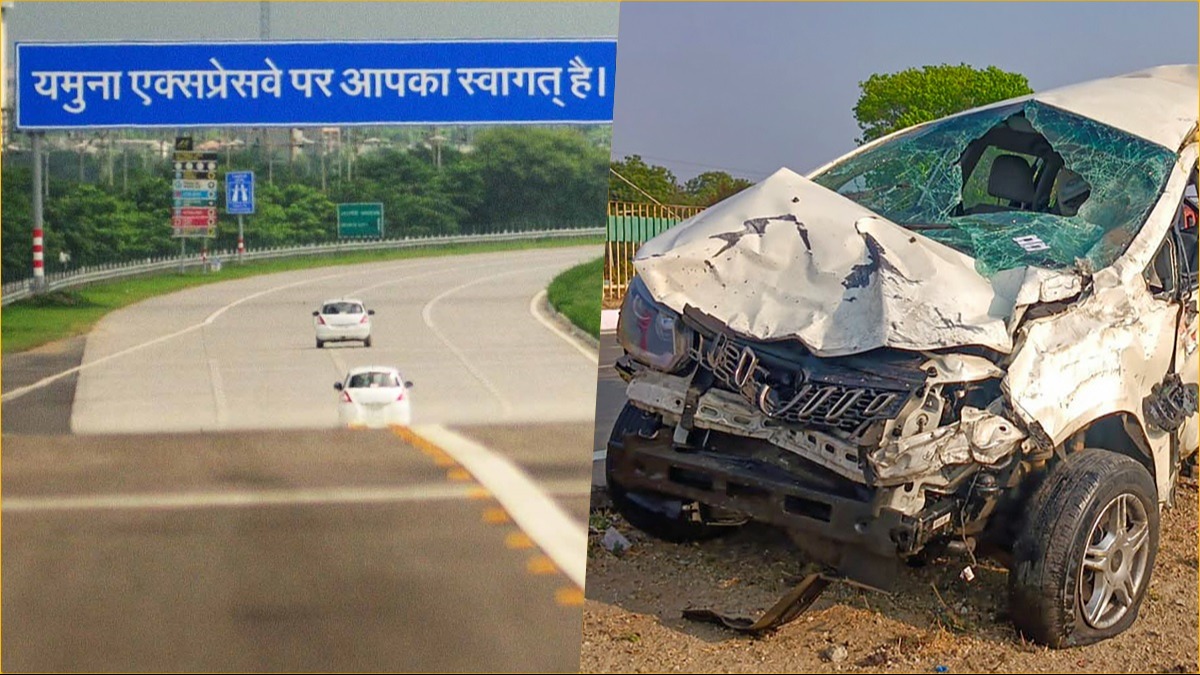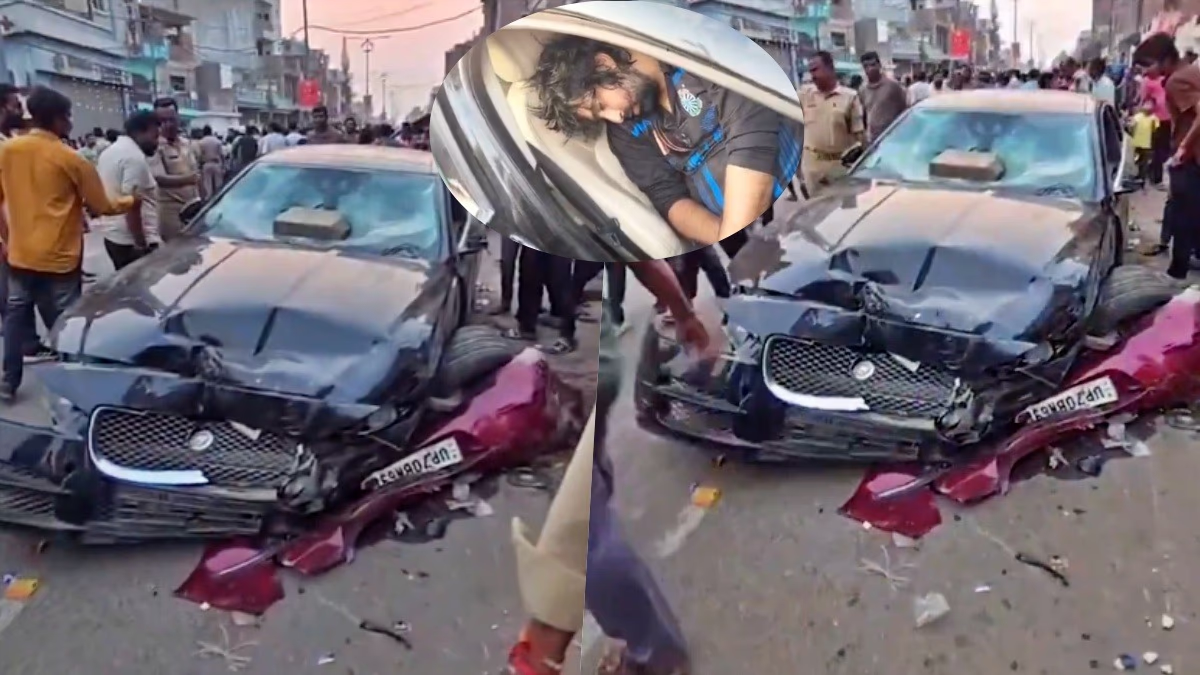Nationwide, rapid expansion of highways and expressways is offering speed to life but turning a blind eye to safety could transform these roads into highways of death. Recently, a groom's car journeying from Greater Noida to Deoria on the Yamuna Expressway suffered a tragic crash due to a tire burst. The event resulted in five fatalities and three serious injuries. Frequent incidences of tire explosions on expressways, causing loss of life, have caught everyone's attention.
A Closer Look at the Incident:
Let's delve into the accident details. On the night of April 20, Santosh Patel's wedding procession set out from Noida. It was expected to reach Deoria on the 21st of April, but that morning near Kuberpur, the groom's Ertiga's front tire exploded. The vehicle disintegrated, killing five, including the groom's brother Gautam Patel. Just moments before the accident, Santosh exited the vehicle to pick up his sherwani.
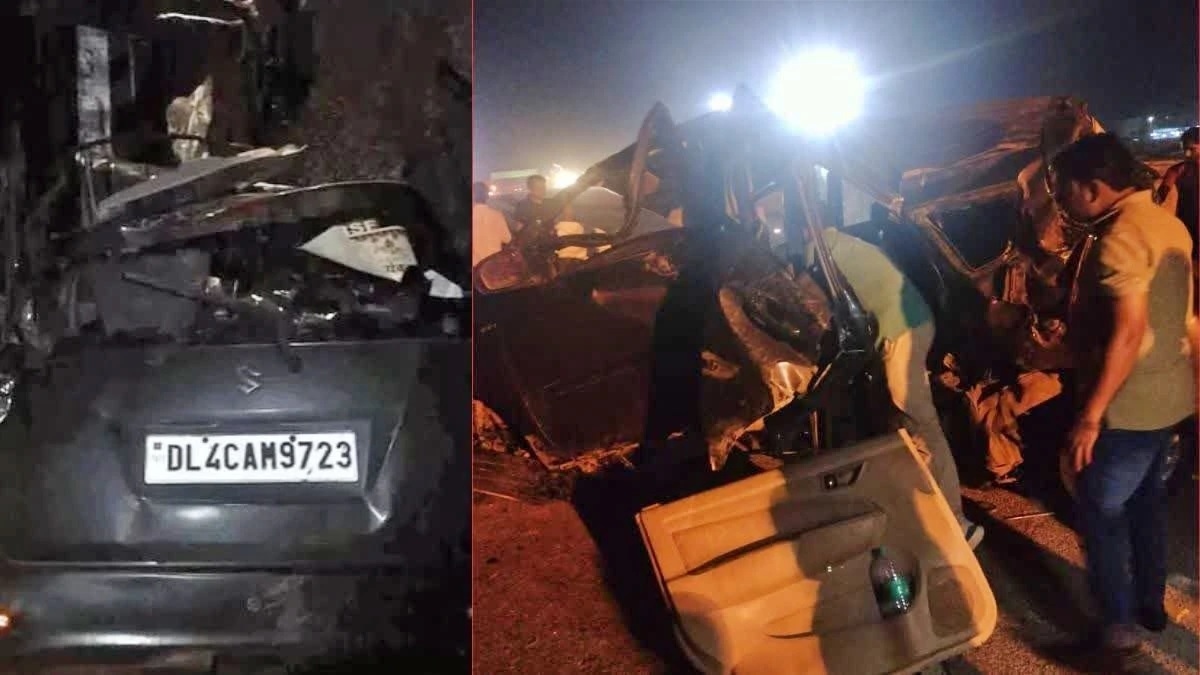
Source: aajtak
The Possible Cause:
Information suggests that the car was speeding along the expressway when suddenly the front wheel burst with a loud noise, sending the car into an uncontrollable spin, repeatedly striking the divider until it was shattered. The rapidity of events didn't allow the driver any chance to regain control. The exploding tire is considered the primary cause of this tragic incident. Therefore, it's crucial to understand the reasons behind tire bursts on expressways and how to prevent them.
Why Does a Tire Burst?
There are myriad reasons for tire bursts, but in essence, it occurs when air pressure escapes quickly from a damaged tire structure, unable to contain the internal air. If the tire condition is compromised, pressure from even a minute breach or leakage can break the structure, resulting in a burst with explosive force.
The tire manufacturer Apolo Tyres emphasizes certain points that should not be overlooked. Here are the contributing factors that increase the likelihood of tire bursts.
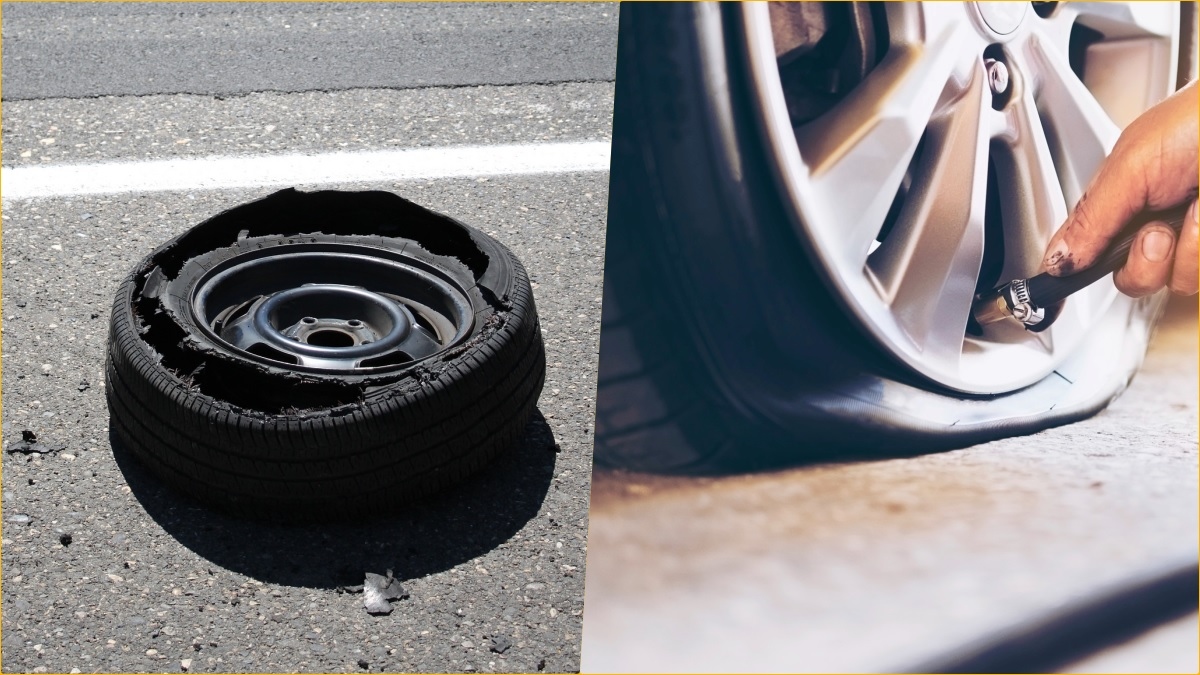
Source: aajtak
Direct Impact:
When a speeding car’s tire hits a large pothole or scrapes harshly against rough road edges, the tire’s structural integrity can be compromised. However, this scenario is less likely on expressways due to better road conditions compared to traditional streets.
Extreme Temperatures:
Incidents of tire bursts rise in the summer as rising temperatures affect the tire pressure. The friction between road and tire heats up the rubber, sometimes even causing an odor of burning tires. In some North Indian cities, where temperatures soar to 48-50 degrees Celsius, an already weakened tire structure becomes a ticking time bomb.
Low Air Pressure:
Inadequate inflation is a leading cause of tire bursts. Reports suggest that nearly 75% of tire burst accidents occur with underinflated tires. The excessive flexibility due to low air leads to increased friction and, consequently, overheating, risking a sudden blowout.
High-Speed:
Continuous high-speed driving can increase the chances of a tire burst. Tires are rated for specific speed limits and surfaces, and ignoring these ratings can lead to explosive consequences, particularly on expressways.
Overloading:
Excessively loading the vehicle with passengers or cargo puts additional pressure on the tire, which, if beyond the manufacturer's recommendations, can lead to failure.
Increase in Expressway Incidents:
Recent times have seen numerous tire burst incidents on expressways. One major reason is the immediate acceleration upon experiencing the smooth roads of expressways — higher speeds increase friction. Furthermore, expressways are constructed using concrete, which generates more heat during friction than the bitumen used in traditional roads, contributing to increased tire burst risks.
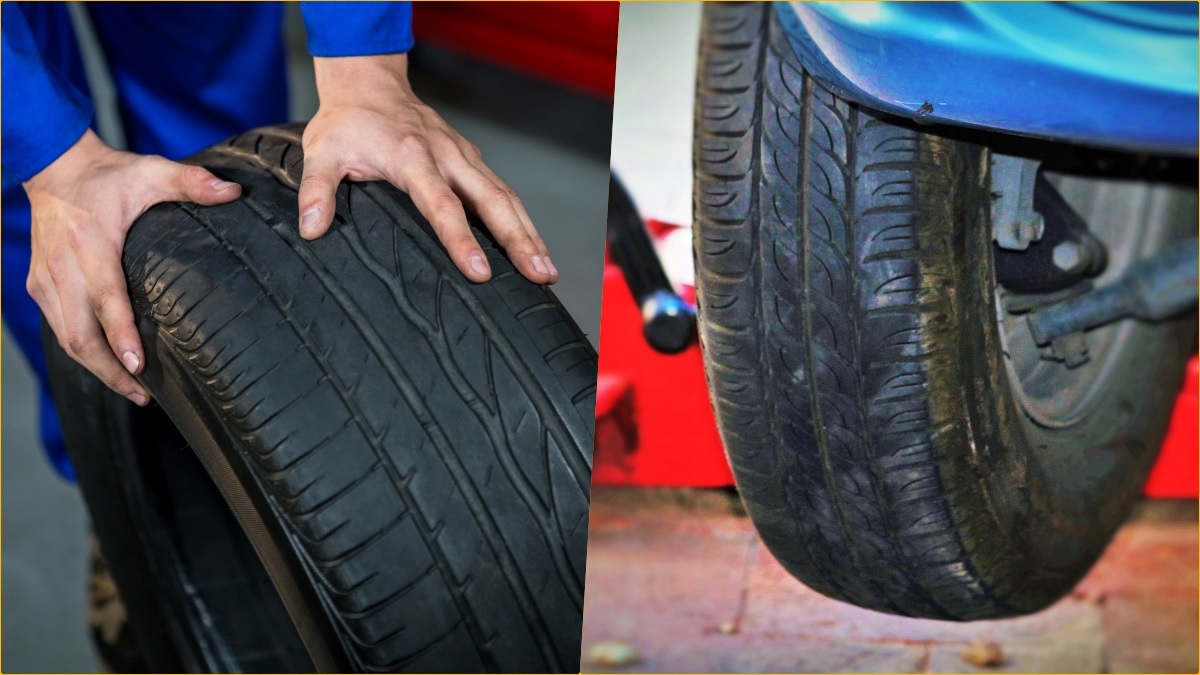
Source: aajtak
Preventing Tire Bursts:
1)-
Always maintain tire pressure at the standard levels suggested in your car's manual. Top up the tires without delay if you notice low pressure.
2)-
Before starting a journey and upon arrival, check the car's tires. Modern car tires come with tread wear indicators; don’t drive on tires with less than 1.5 mm of tread depth. If the wear reaches the indicator, it's time for a replacement.
3)-
Avoid overloading your vehicle, especially for long trips. Over-packing with passengers and luggage increases unnecessary tire pressure.
4)-
Use high-quality branded tires and avoid local or low-grade alternatives that can be perilous. Stick to original tires available at authorized service centers.
5)-
Follow car manufacturers' guidelines for altering the size of your vehicle's tires. Don't undertake modifications without considering the implication for tire safety.
6)-
Keep a spare wheel in your car. Replace a worn tire immediately. If unsure, consult an authorized service center for an assessment.
7)-
Use nitrogen air in your vehicle's tires, particularly for expressways. It helps keep running temperatures low, extending tire life and reducing the chances of overheating.
